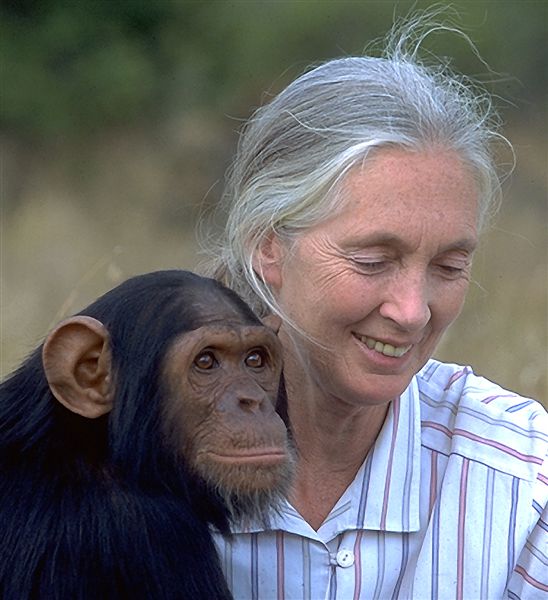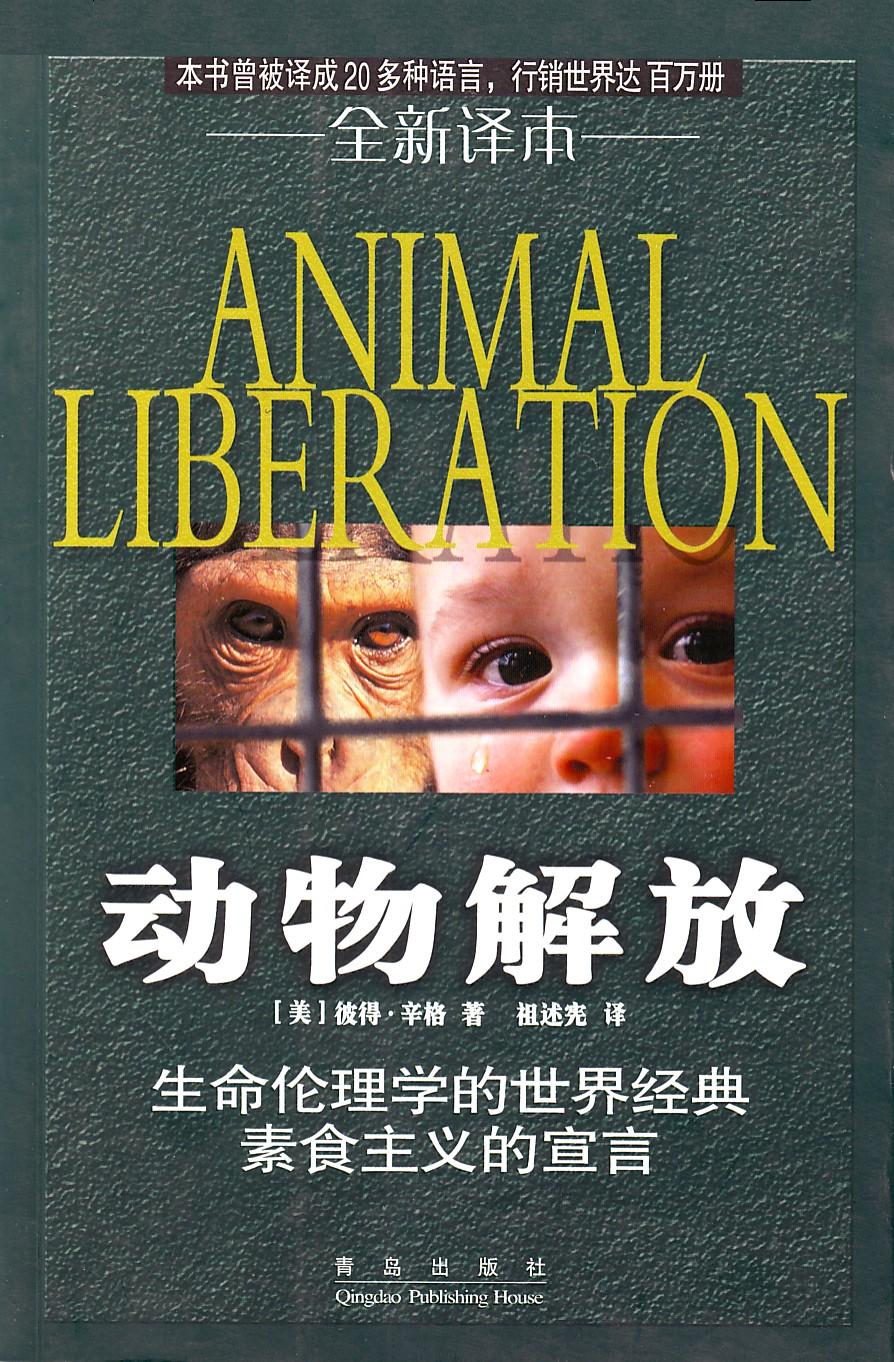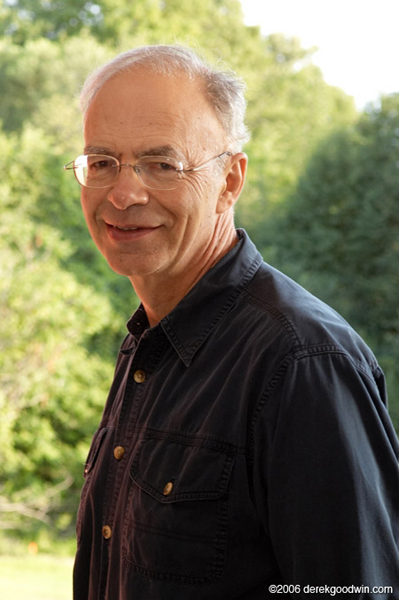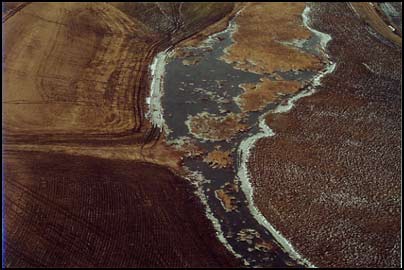Dame Jane Goodall, DBE (born Valerie Jane Morris Goodall on 3 April 1934) is an English UN Messenger of Peace, primatologist, ethologist, and anthropologist. She is well-known for her 45-year study of chimpanzee social and family interactions in Gombe Stream National Park, Tanzania, and for founding the Jane Goodall Institute.
Jane Goodall is an animal welfare activist and is the former president of Advocates for Animals, an organization based in Edinburgh, Scotland, that campaigns against the use of animals in medical research, zoos, farming and sport.
 珍·古德女爵士是英國靈長類動物學家、動物行為學家、人類學家和聯合國和平使者、國際動物保育人士。珍·古德因45年長期致力於黑猩猩的野外研究而著名。她的工作糾正了許多學術界對黑猩猩這一物種長期以來的錯誤認識,揭示了許多黑猩猩社群中鮮為人知的秘密。除了對黑猩猩的研究,珍·古德還熱心投身於環境教育和公益事業,由她創建並管理的珍·古德研究會(國際珍古德協會)是著名民間動物保育機構,在促進黑猩猩保育、推廣動物福利、推進環境和人道主義教育等領域進行了很多卓有成效的工作,由珍·古德研究會創立的根與芽是目前全球最活躍的面向青年的環境教育計劃之一。由於珍·古德在黑猩猩研究和環境教育等領域的傑出貢獻,她在1995年獲英國女王伊莉莎白二世榮封為皇家女爵士,在2002年獲頒聯合國和平使者。
珍·古德女爵士是英國靈長類動物學家、動物行為學家、人類學家和聯合國和平使者、國際動物保育人士。珍·古德因45年長期致力於黑猩猩的野外研究而著名。她的工作糾正了許多學術界對黑猩猩這一物種長期以來的錯誤認識,揭示了許多黑猩猩社群中鮮為人知的秘密。除了對黑猩猩的研究,珍·古德還熱心投身於環境教育和公益事業,由她創建並管理的珍·古德研究會(國際珍古德協會)是著名民間動物保育機構,在促進黑猩猩保育、推廣動物福利、推進環境和人道主義教育等領域進行了很多卓有成效的工作,由珍·古德研究會創立的根與芽是目前全球最活躍的面向青年的環境教育計劃之一。由於珍·古德在黑猩猩研究和環境教育等領域的傑出貢獻,她在1995年獲英國女王伊莉莎白二世榮封為皇家女爵士,在2002年獲頒聯合國和平使者。Jane Goodall has received many honors for her environmental and humanitarian work, as well as others. She was named a Dame Commander of the Order of the British Empire in a ceremony held in Buckingham Palace in 2004. In April 2002, Secretary-General Kofi Annan named Dr. Goodall a United Nations Messenger of Peace. Her other honors include the Tyler Prize for Environmental Achievement, the French Legion of Honor, Medal of Tanzania, Japan's prestigious Kyoto Prize, the Benjamin Franklin Medal in Life Science, the Gandhi-King Award for Nonviolence and the Spanish Premio Príncipe de Asturias. She is also a member of the advisory board of BBC Wildlife magazine.
In 2002, the Canadian city of Greater Sudbury, Ontario dedicated a walking trail, highlighting some of the city's efforts to rehabilitate environmental damage from the local mining industry, to Goodall.
On 7 July 2007 Goodall presented at Live Earth.
In April 2008, Jane was awarded the Montana State University Medal for Global and Visionary Leadership.
珍古德博士談素食

在我看來,肉象徵著恐懼、痛苦、和死亡,
我一點也不想吃恐懼、痛苦、和死亡! --Jane Goodall

我一點也不想吃恐懼、痛苦、和死亡! --Jane Goodall

2006年10月27日,國際知名的保育學家珍‧古德博士第九度來台,進行2006年歲末的巡迴演講活動。提到珍.古德博士,相信每個人心中都會自然浮現出她與黑猩猩親密互動的感人畫面,然而,在台灣卻鮮少人知道,這位大力疾呼保育動物的堅毅女子,其實從很久以前就已成為一位素食者,把保護地球的理念,從口號落實到生活中的實際行為。
在素食星球採訪當天,博士從早上八點就開始進行一連密集的演講和遊行活動,到傍晚時已經非常疲累了,原本想要取消訪問,可是當她知道我們是代表台灣的素食朋友時,仍強打起精神與我們分享她的素食經驗,由此可以看到,博士對於推廣素食理念,是多麼無私的努力與投入。
Claudia:We know that you are a vegetarian. And it would be significant if you can share your vegetarian experience with us. So let’s start with the most frequently asked question:Why and how did you become a vegetarian?
陳:我們知道您是一位素食者,如果您能與我們分享您本身的素食經驗,那它的意義將是非常深遠的。所以,就讓我們從一個最常見的問題開始吧:您為什麼會選擇素食?又是如何成為一位素食者的呢?
Dr. Jane:When I left Gombe and came back to England in ……I think early 1970. I read a book called《Animal Liberation》by some one called Peter Singer. When I left for Africa, there was no intensive farming. The animals were in the fields, and the hens were pecking in farmyard. When I read Peter Singer’s book, that was ten years or twelve years latter, and I read about intensive farming, I was horrified. I was absolutely horrified. Next time I had a piece of meat on my plate, I looked at it and I say:「What’s that?It symbolizes fear、pain、death.」I don’t want to eat fear、pain and death. So I stopped just like that.
博士:當我離開岡貝回到英國時,我想那是在1970年初吧!我讀到一本名叫《動物解放》的書,它的作者是彼得.辛格。在我離開英國前往非洲的時候,世界上還沒有集約式農場。動物們都徜徉在農場田野間,母雞也都能在農場空地上啄食米榖或小蟲。因此,當我在大約十到十二年之後,讀到彼得‧辛格書中,關於集約式農場的敍述時,我感到震驚不已,我完完全全被嚇壞了!之後的用餐時間裡,我看到盤子上躺著一塊肉,我看著它,並且說:「這是什麼?它是恐懼、痛苦和死亡的象徵!」我一點也不想吃恐懼、痛苦和死亡,就這樣,我從此不再吃肉。


Claudia:So you stop Meat-Eating immediately.陳:因此您是在一瞬間就停止了肉食?
Dr. Jane:Yes!博士:是的!
Claudia:Not gradually reduce the Meat-Eating?陳:您並不是慢慢的減少食肉量直到完全不吃?
Dr. Jane:No! Just “Bang”!In one second! You know I have a…my sister’s grandson, when he was four, just four years old, he suddenly looked at a piece of chicken on his plate, he said:『Where did this come from?』
His mother said:『Well!It is a chicken.』
He said:『Like the chicken I saw on the farm?』
She said:『Yes!』Then he said:『I don’t want to eat that.』
So she said:『Well!you don’t have to.』
Next is a piece of meat:『Where did this come from?』
『That came from a cow.』『I don’t want to eat cows.』
So he completely stop eat meat. Four! He’s just four. He went on eating fish. And then his mother took him to the aquarium. You know there are fishes…He spent a long time looking around.
He loves fish. And when he came back, he said:『I never going to eat the pretty fish again.』
So she took him to see some of the …you know, the other sort of…I don’t know what fish, but eating fishes. He was very very quiet.
And he said:「I can not eat any fish anymore.」That was pretty amazing. He’s only four.
博士:不是!就是「砰」的一下!(博士用力的拍了一下手:啪!)
就在一秒之間!你知道我有一個……呃……我妹妹的孫子,當他四歲的時候,只有四歲哦!
有一天他突然看著他盤子上的一塊雞肉,然後問道:「這是從哪兒來的呢?」
他的母親回答他說:「噢!這是一隻雞。」他繼續問:「就像我在農場裡看到雞嗎?」
母親說:「是的!」然後他說:「我不想吃牠們。」於是母親說:「沒關係,你可以不用吃。」
之後有一次,盤中的是一塊肉:「這又是從哪兒來的呢?」「那來自一頭牛。」「我不想吃牛兒。」
就這樣,他完全不再吃肉類了。四歲!他才只有四歲耶!
那時他還吃魚,然後有一天,他的母親帶他到水族館參觀,
你知道,就是有很多魚的地方,他在裡頭待了很久,慢慢的看得很仔細,他很喜愛魚兒,
當他回家後,便說:「我再也不要吃那些可愛的魚兒了!」
於是他的母親又帶他去看一些其他的魚,我不知道是什麼魚,總之是一些食用魚。
他非常非常的安靜而沉默,然後他說:「我再也無法吃下任何一種魚了。」
這真的是非常讓人驚訝的一件事,他才只有四歲呀!
Claudia:So you think if the children know that the meat is from a life,
then they won’t eat them?
陳:所以您是否認為如果孩子們知道肉類是來自於生命,他們就不會想要吃了呢?
Dr. Jane:Maybe very helpful, they won’t. But their parents may not. The parents have this idea that they must have animal protein. The protein’s healthy. Of course! But…I mean… so many millions of people around the world grow up with the culture that doesn’t eat animals, like Buddhists、Hindus……
博士:也許那會很有用,他們應該不會想吃;但是他們父母可能不這麼想。為人父母者大都有一個觀念:「他們必須要攝取動物蛋白質,有蛋白質才會健康。」當然啦!不過……我的意思是……世界上有好幾百萬人口,都在不吃肉的文化下長大,像是佛教徒啦、印度教徒啦……
Dr. Jane:Yes!博士:是的!
Claudia:Not gradually reduce the Meat-Eating?陳:您並不是慢慢的減少食肉量直到完全不吃?
Dr. Jane:No! Just “Bang”!In one second! You know I have a…my sister’s grandson, when he was four, just four years old, he suddenly looked at a piece of chicken on his plate, he said:『Where did this come from?』
His mother said:『Well!It is a chicken.』
He said:『Like the chicken I saw on the farm?』
She said:『Yes!』Then he said:『I don’t want to eat that.』
So she said:『Well!you don’t have to.』
Next is a piece of meat:『Where did this come from?』
『That came from a cow.』『I don’t want to eat cows.』
So he completely stop eat meat. Four! He’s just four. He went on eating fish. And then his mother took him to the aquarium. You know there are fishes…He spent a long time looking around.
He loves fish. And when he came back, he said:『I never going to eat the pretty fish again.』
So she took him to see some of the …you know, the other sort of…I don’t know what fish, but eating fishes. He was very very quiet.
And he said:「I can not eat any fish anymore.」That was pretty amazing. He’s only four.
博士:不是!就是「砰」的一下!(博士用力的拍了一下手:啪!)
就在一秒之間!你知道我有一個……呃……我妹妹的孫子,當他四歲的時候,只有四歲哦!
有一天他突然看著他盤子上的一塊雞肉,然後問道:「這是從哪兒來的呢?」
他的母親回答他說:「噢!這是一隻雞。」他繼續問:「就像我在農場裡看到雞嗎?」
母親說:「是的!」然後他說:「我不想吃牠們。」於是母親說:「沒關係,你可以不用吃。」
之後有一次,盤中的是一塊肉:「這又是從哪兒來的呢?」「那來自一頭牛。」「我不想吃牛兒。」
就這樣,他完全不再吃肉類了。四歲!他才只有四歲耶!
那時他還吃魚,然後有一天,他的母親帶他到水族館參觀,
你知道,就是有很多魚的地方,他在裡頭待了很久,慢慢的看得很仔細,他很喜愛魚兒,
當他回家後,便說:「我再也不要吃那些可愛的魚兒了!」
於是他的母親又帶他去看一些其他的魚,我不知道是什麼魚,總之是一些食用魚。
他非常非常的安靜而沉默,然後他說:「我再也無法吃下任何一種魚了。」
這真的是非常讓人驚訝的一件事,他才只有四歲呀!
Claudia:So you think if the children know that the meat is from a life,
then they won’t eat them?
陳:所以您是否認為如果孩子們知道肉類是來自於生命,他們就不會想要吃了呢?
Dr. Jane:Maybe very helpful, they won’t. But their parents may not. The parents have this idea that they must have animal protein. The protein’s healthy. Of course! But…I mean… so many millions of people around the world grow up with the culture that doesn’t eat animals, like Buddhists、Hindus……
博士:也許那會很有用,他們應該不會想吃;但是他們父母可能不這麼想。為人父母者大都有一個觀念:「他們必須要攝取動物蛋白質,有蛋白質才會健康。」當然啦!不過……我的意思是……世界上有好幾百萬人口,都在不吃肉的文化下長大,像是佛教徒啦、印度教徒啦……
 Claudia:Except the ethic reason, do you think is there any other meaning for the earth when somebody says I don’t want to eat meat. I want to become a vegetarian. What is the meaning for this planet?陳:除了人道倫理上的原因,您認為素食對地球還有什麼其他的意義呢? 當某個人說:「我不想再吃肉了,我要成為一個素食者。」時,究竟對這個星球的意義是什麼呢?
Claudia:Except the ethic reason, do you think is there any other meaning for the earth when somebody says I don’t want to eat meat. I want to become a vegetarian. What is the meaning for this planet?陳:除了人道倫理上的原因,您認為素食對地球還有什麼其他的意義呢? 當某個人說:「我不想再吃肉了,我要成為一個素食者。」時,究竟對這個星球的意義是什麼呢?Dr. Jane:Well! It means a lot, because there are very ill problems with eating animals. One is what I say the intensive farming and the cruelty. Secondly, for keeping cattle they need grain, expose the grass they fed grain, and to cut down a lot of rainforest to grow grain for cattle, or to grass the cattle. One or the other they need a lot of space.
And it‘s very interfacial that they use much more water to change grain into meat. It’s very wasteful. And use a lot more water. So that’s the second reason that it’s very bad for the environment. And also the pollution from the intensive animal farms-- Polluting fields going down into the ground water, polluting the streams、the rivers, and everything out into the sea.
Big farms in the America, they are absolutely terrible, and the smell is awful. And people who living near the hog farm is usually poor, usually black, and there is nothing they can do about it.
And Sundays they have to keep their doorway and the window shut, because it is too bad. And when they were flooding, all these waste was wash down into the sea and thousands of fish died.
So that’s bad, in environmentally bad. And thirdly, to keep the animals alive in the intensive farms, they need antibiotics. Otherwise they’ll get sick, you know, the animal’s resistance is all depress.
So, because they get fed antibiotics regularly in the diet, it means the antibiotics get out into the food chain and gradually the bacteria become resistant. So people have actually died from the cattleman finger.
Who just round the antibiotics strong enough, they build up these resistances. So, for that reason’s well. Not to eating meat is good.
博士:噢!它的意義可多了呢!因為食用動物本身就存在著非常嚴重的問題。首先就是我剛剛說過的集約式農場和其殘酷面。
第二,要飼養牲口,人們需要穀物,因為他們捨棄草料而用穀物餵養牲口,於是人們砍倒了大片大片的雨林,就為了種植這些給牲口吃的穀物,或者是放牧這些牲口——不論是哪一種方式都需要非常大的空地。同時,非常一體兩面的事實是,人們用了太多太多的水,去把穀物變成肉,那是非常浪費的,他們對水的濫用已經超出太多。所以,第二個原因就是肉食對環境的破壞非常大。
此外,還有集約式動物農場所造成的污染——土地所受到的污染會向下滲透到地下水中,進而污染溪澗和河流,最後所有的污染都會進入大海。美國所有的大型農場,環境都非常糟糕,而且氣味都非常恐怖。而住在養豬場附近的人家通常都是窮人,要不就是黑人,他們對這一切完全莫可奈何,束手無策。每到週日,他們就得緊閉所有的門窗,因為環境實在是太糟糕了!而當穢物滿溢時,所有的排泄物都會被冲進海裡,造成千萬隻魚兒死亡。因此那真的很糟糕,尤其對環境非常糟。
第三,要讓動物在集約式農場中存活,人們必須施用抗生素,否則牠們就會生病;你知道的,在那種環境下動物們的抵抗力會大幅降低。就這樣,由於人們長期都在動物所吃的飲食中摻放抗生素餵食,這表示抗生素將會進入食物鍊中,日積月累下來,細菌就會開始產生抗藥性。所以認真來說,人們實際上是死於畜牧業者的手指——是他們使用了日益強效的抗生素,是他們造成了這些抗藥性。因此,為了這種種的理由,不要吃肉是非常好的。

畜牧活動導致各種嚴重的環境問題。圖為被畜牧場釋出排泄物污染的河道。
圖片來源:K. Hudson (factoryfarm.org)
 Claudia:Do you think is it possible that someday our planet will become a vegetarian planet?I mean that someday the population of vegetarian will more than the meat-eaters?陳:那麼,您是否認為在未來,我們的地球有可能會成為一個素食的星球?我是說有沒有可能未來素食的人口會多於肉食者呢?
Claudia:Do you think is it possible that someday our planet will become a vegetarian planet?I mean that someday the population of vegetarian will more than the meat-eaters?陳:那麼,您是否認為在未來,我們的地球有可能會成為一個素食的星球?我是說有沒有可能未來素食的人口會多於肉食者呢?Dr. Jane:Oh! Maybe! There’s another reason too. That is …If you look at it therologically, carnivorous animals who are designed to eat meat they have long sharp teeth and claws, or they have beaks to eat bugs.
And the carnivores have a short gut, because it’s very important to get the meat out quickly, to become waste.
They couldn’t keep it because it goes bad.
And the vegetable eating animals have a much longer gut,because you need the time to get the goodness out of the vegetables. We have a long or short gut?Long gut!
So keeping a lot of meat in this long gut is not good for our health.
People get that heavy feeling. For all those good reasons…but… most of time I would say to people, you know when people say:
『Well!I really need …I have to eat some meat. Just a little meat.』
And it’s not so bad because if you eat a little meat,if everybody ate, lots of people stop eating meat are those they ate a little meat. And they insisted on buying free-ranging animals、animals are not in intensive grow and fed organic.
博士:噢!可能哦!其實素食還有另一個理由就是:如果你從哺乳動物學上來看,被大自然設計為天生吃肉的肉食動物,大都有著長長的尖牙和利爪,或是有可以吃蟲的尖喙。而且肉食動物的腸子大都很短,因為牠們得很快的把肉食變成排泄物排出體外,這是很重要的,他們不能把肉留肚子裡,那樣會發腐變壞。
而草食動物的腸子則都要比肉食動物長得很多,因為你需要時間去消化吸收植物中的營養。那麼我們人類的腸子是長的還是短的呢?長的!所以,把大量的肉食放在這麼一條長腸子裡,對我們的健康是很不好的,人們會感覺很沉重。雖然素食有這麼多好處,不過,我通常會對人們說…你知道當人們說:「噢!我真的很需要吃一些肉,就吃一點點就好。」我會說那也不算差,因為如果你只吃一點點肉,如果所有人都只吃一點點肉,那麼……很多決定不再吃肉的人,都是那些之前只吃一點點肉的人,而且他們都會堅持只買自由放養的動物,或是非集約式養殖的動物,以及吃有機草料的動物。

沒有留言:
張貼留言